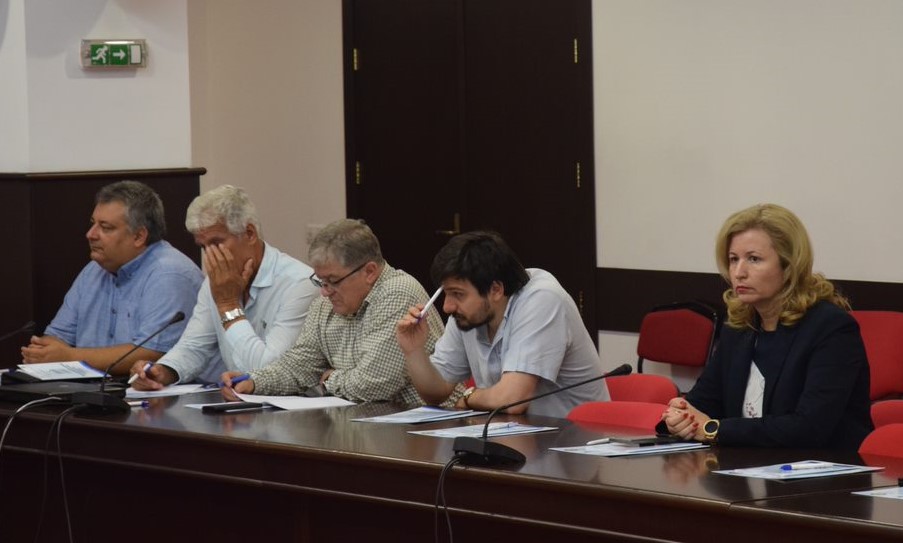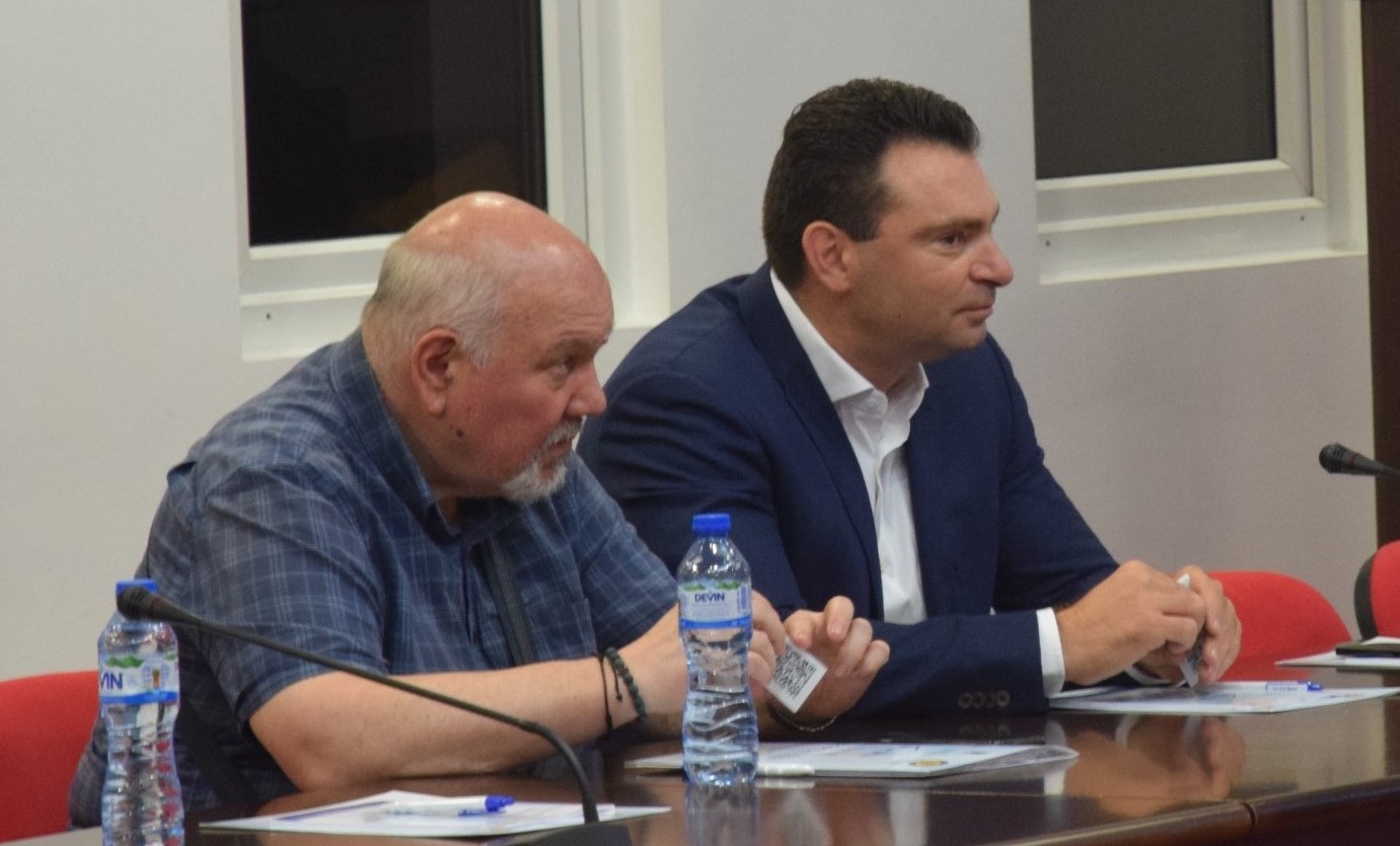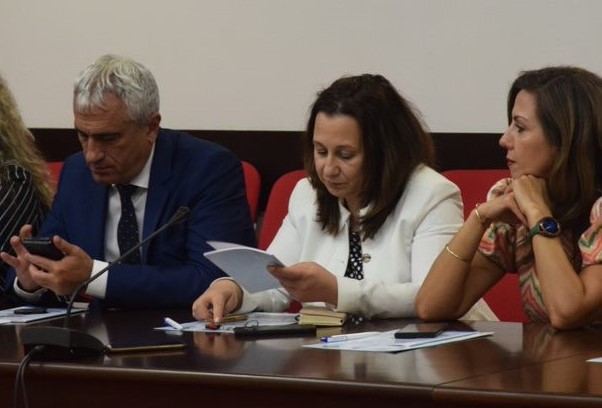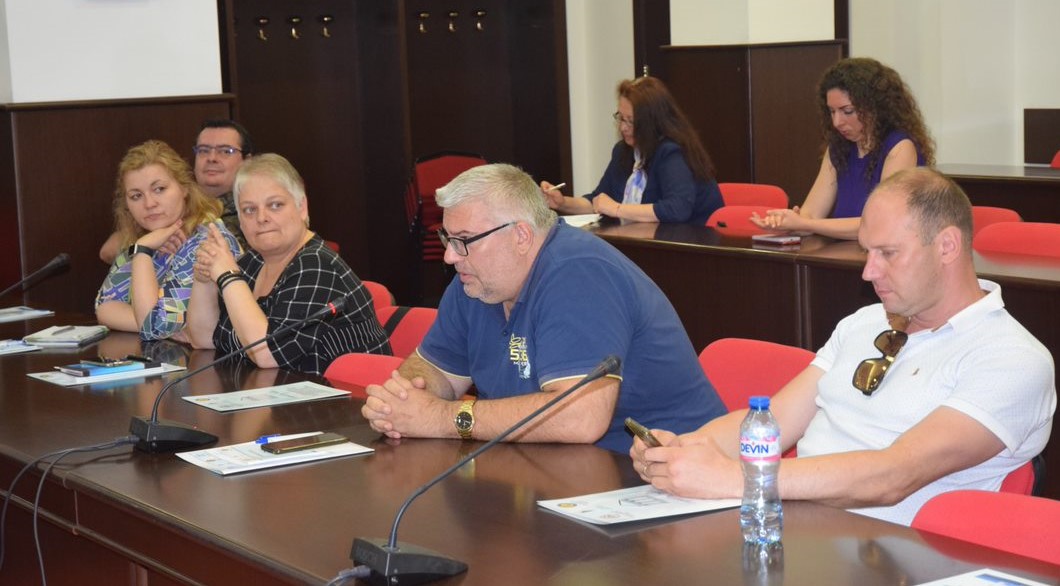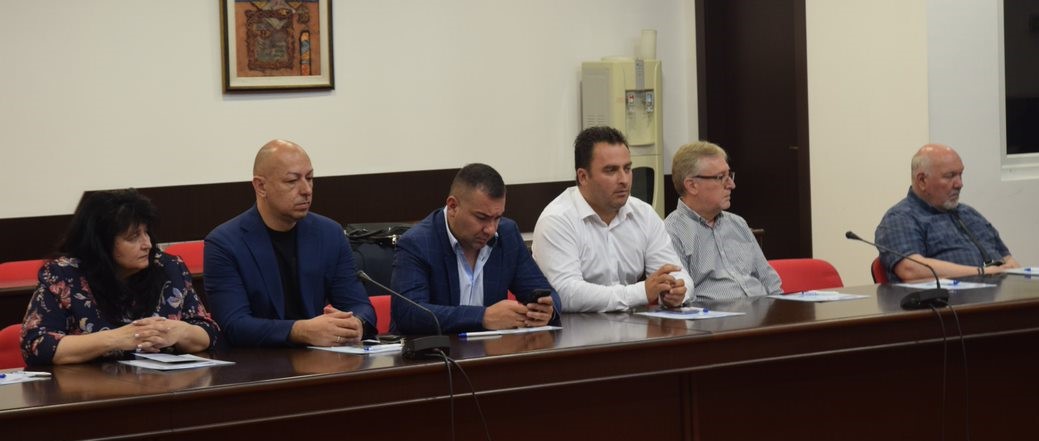National Survey Finds Out That the Administrative Capacity of State Administration Declines
The Administrative Capacity Index of State Administration for 2022 is 104.65 compared to 109.2 in 2021. It was announced by Prof. D.Sc. Borislav Borisov - the author of the national survey of the administrative capacity of state administration. He presented the results of the study at the UNWE.
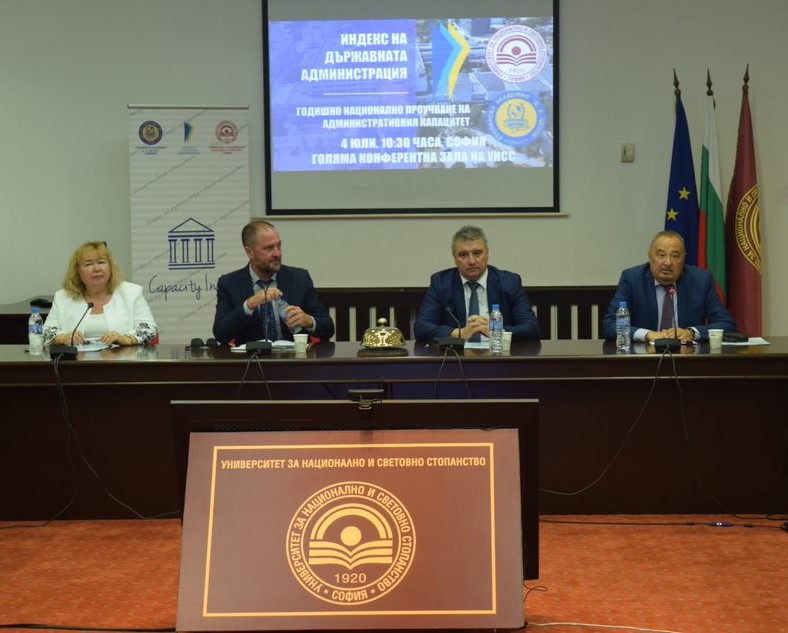 |
| Prof. Dr. Mariana Bozhinova, Rector of D. A. Tsenov Academy of Economics – Svishtov, Prof. Dr. Dimitar Dimitrov and Prof. D.Sc. Borislav Borisov |
The study is supported by the UNWE, D. A. Tsenov Academy of Economics – Svishtov and the Institute of Public Administration at Bulgarian Council of Ministers. The survey is conducted for the sixth consecutive time and in the current year 54 administrations were involved. The event was attended by representatives of ministries, state agencies, institutions and universities - UNWE, D. A. Tsenov Academy of Economics – Svishtov, St. Climent Ohridsky University of Sofia, etc.
At the beginning of the event welcoming words were addressed by the rectors of both universities participating in the study. The rector of UNWE outlined: "This research, besides being interesting, is extremely important. It demonstrates the role of research for supporting the practice, in this case the state administration. The role of the public administration is a little bit underestimated, the numbers for admission are reduced and it should be taken into account that the development of economic and social processes, of foreign investments, of all processes, depend on the administrative capacity". He pointed out that sometimes very good management decisions fail because of poor administrative measures.
"The study supported by the two important economic universities in Bulgaria – the UNWE and D. A. Tsenov Academy of Economics – Svishtov - is an example of another good cooperation between the two universities where study undergraduates and Doctoral students in public administration and we are directly affected by their successful realization", said the Rector of D. A. Tsenov Academy of Economics – Svishtov Prof. Dr. Mariana Bozhinova.
Prof. D.Sc. Borislav Borisov presented the results of the study emphasizing that in 2022 there is a serious regression in the capacity of the administration. "The administration is a conservative system but nevertheless it changes. Our ambition is to measure this change and the extent to which it can deliver good governance. In 2022 the assessments of the administrative capacity of state administration are worse than in the previous year 2021", said the author of the national survey.
"If in 2017 we took 100 as the base, in the following year 2018 the administrative capacity index was 104.42. In the subsequent years it has risen reaching up to 109.21 in 2021. Now we have a regression - down to 104.65. It is closer to what it was in 2018. This is one assessment of the qualitative changes occurring in the administration. Here I mean ministries, agencies, state commissions, regional and municipal administrations", explained the researcher.
Administrative Capacity Index of Good Governance values by years
| Administrative Capacity Index of State Administration for 2017 | 100 |
|
Average Assessment of State Administration for 2018 |
2, 8881 |
|
Administrative Capacity Index of State Administration for 2018 |
104,42 |
|
Average Assessment of State Administration for 2019 |
2,8453 |
|
Administrative Capacity Index of State Administration for 2019 |
102,87 |
|
Average Assessment of State Administration for 2020 |
2,9143 |
|
Administrative Capacity Index of State Administration for 2020 |
105,36 |
|
Average Assessment of State Administration for 2021 |
3,0208 |
|
Administrative Capacity Index of State Administration for 2021 |
109,21 |
|
Average Assessment of State Administration for 2022 |
2,8945 |
|
Administrative Capacity Index of State Administration for 2022 |
104,65 |
In order to calculate the Administrative Capacity Index of Good Governance were assessed activities such as the planning of administration's activities, the influence of political environment on its work, leadership style, personnel policy, financial situation and budget policy, internal control, willingness to partner with other organizations and public councils, openness, transparency and accessibility, etc.
The survey covers 54 administrative structures, including ministries, state agencies, state commissions, executive agencies, administrative structures under the Council of Ministers and those under the National Assembly, regional and municipal administrations and specialized territorial administrations.
The administration receives high assessments in the areas of access to public information, risk management, business planning and data protection system.
Low assessments are given to:
- The lack of practice in conducting impact assessments as a tool for measuring the long-term effects of introducing new regulations and implementing policies, including analyses of tax and administrative burdens;
- The compliance with personal integrity and professional ethics by the employees and the management of administrative bodies which is not at the required level;
- The application of forms of public-private partnership and outsourcing of activities to external contractors;
- The adequacy of the number of employees in the different administrative units for implementation of specific functions and the high staff turnover;
- Identification of discrepancies in financial commitments and expenditures because they are not documented and their exact number and amount cannot be stated;
- The negative impact of the lack of a regular government and a permanent National Assembly in 2022;
- The application of sustainable development principles and criteria;
- The clear regulation of the budgetary procedure mainly in the executive agencies, the administrative structures established by legal act which have functions in relation to the exercise of executive power under the Council of Ministers, the regional administrations and the specialized territorial administrations;
- The ensurance of equal opportunities for people with disabilities;
- The application of systems for self-assessment of activity and
- The work on internship programmes and the acceptance of students for internships in administrations.
The reasons for this decline of the administrative capacity lie in the multiple crises that have accompanied the country in the past 2022 - foreign policy related to the war in Ukraine, domestic policy related to the inability to run a regular government with consistent priorities and the lack of a National Assembly and hence the delay in the adoption of important laws for the country, the energy crisis, high inflation in 2022 and the ongoing pandemic of COVID-19. Another group of reasons can be found in the slowdown of the modernization processes of the public administration. The Strategy for the Modernization of the State Administration 2003-2006 has already been out of force as well as the more recent Strategy for the Development of the State Administration 2013-2020. An updated version of the Strategy for e-Government Development in the Republic of Bulgaria 2019-2025 has been developed which foresees the preparation of sectoral strategies for e-government development in 23 areas but only the Justice Sector, the Customs Agency and the National Social Security Institute have such strategies.
All this shows that the efforts to modernize the state administration should not end with the expiry of a certain document but should be permanent and set as goals in specific strategic documents and their achievement should be tangible for society.
The study report is 56 pages long and provides detailed explanations of the levels of administrative capacity of state administration by groups of administrations and by areas of administrative capacity.
